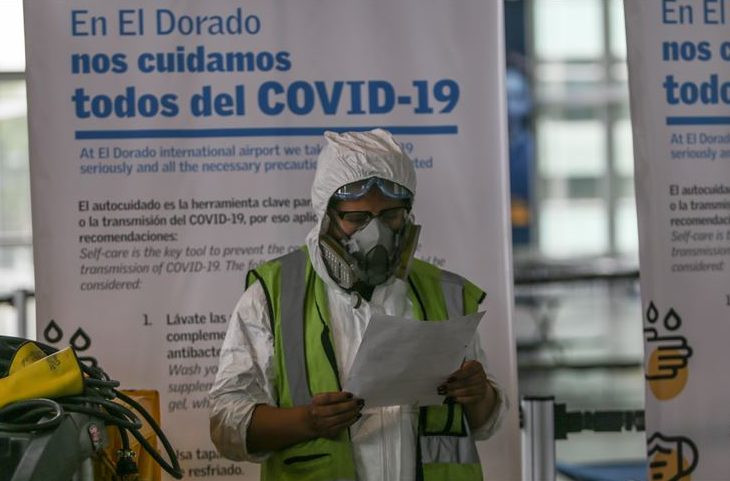
Apr 8, 2020 | Noticias
Por décadas, un número importante de colombianos han sido víctimas de crímenes atroces relacionados con el conflicto armado. En particular, los defensores de derechos humanos han sido blancos de violaciones de derechos humanos y abusos serios, como asesinatos, amenazas de muerte y hostigamientos.
Solo este año, la Oficina de la Alta Comisionada de las Naciones Unidas para los Derechos Humanos (ACNUDH) ha recibido información sobre 56 posibles casos de asesinatos de defensores de derechos humanos. Desafortunadamente, el brote del COVID-19 no ha detenido la violencia contra defensores de derechos humanos.
Al respecto, desde el primer caso confirmado de COVID-19 en el país, el 6 de marzo de 2020, la Organización de Estados Americanos (OEA) y Amnistía Internacional han reportado el asesinato de seis defensores de derechos humanos. Los perpetradores de estos crímenes todavía no han sido identificados.
En igual sentido, las violaciones de derechos humanos y abusos contra comunidades locales tampoco se han detenido. A decir verdad, lo contrario parece ser lo cierto. Así, por ejemplo, se ha denunciado que grupos armados ilegales, incluyendo grupos paramilitares y nuevos grupos formados por disidentes de la guerrilla de las FARC-EP, están aprovechado la pandemia para cometer acciones ilegales con mayor libertad, principalmente en áreas rurales del país. Entre las acciones cometidas por estos grupos, se destaca el desplazamiento forzado de 250 personas y el confinamiento de 770 familias por los combates entre un grupo paramilitar y un grupo guerrillero. Ambas acciones tuvieron lugar en la región pacífica del país, en la cual el conflicto se ha intensificado luego del Acuerdo Final de Paz. Adicionalmente, se conoce de al menos tres desmovilizados de las FARC-EP que han sido asesinados en marzo de 2020.
A pesar de la gravedad de la situación anteriormente descrita, la respuesta del gobierno colombiano a la crisis provocada por el COVID-19 se ha centrado en la creación e implementación de medidas no relacionadas con el conflicto. Al respecto, el gobierno ha decretado regulaciones de gran importancia para mitigar los efectos sociales y económicos creados por el virus. Entre otras regulaciones, el presidente decretó un estado de emergencia y una cuarentena nacional obligatoria por 19 días desde el 25 de marzo de 2020. De igual forma, el gobierno estableció una serie de ayudas sociales y económicas en favor de quienes se verán más afectados por la cuarentena.
Ninguna de estas medidas fue diseñada considerando la situación particular de los defensores de derechos humanos. Como consecuencia, su protección no es un elemento central de las políticas colombianas para hacer frente a la pandemia. Si se considera que la implementación del Acuerdo Final de Paz y los derechos de las víctimas no son prioridades del actual gobierno, el enfoque adoptado no es completamente inesperado. En todo caso, para ser justos, se debe reconocer que los programas estatales para la implementación del Acuerdo han continuado operando durante la pandemia.
Ahora bien, podría argumentarse que la pandemia tiene el potencial de afectar predominantemente derechos humanos que no están relacionados con el conflicto armado. Por lo tanto, desde este punto de vista, la priorización de medidas no relacionadas con el conflicto armado está justificada y es requerida. Si bien esta posición se basa en una premisa valida, que es que la pandemia causada por el COVID-19 crea varios desafíos que van más allá de los problemas de derechos humanos relacionados con el conflicto, ignora un elemento central de la realidad colombiana: la existencia de un conflicto en curso.
Actualmente, el conflicto afecta directamente una parte considerable de la población colombiana, incluyendo la mayoría de los defensores de derechos humanos. Sobre este tema, fue reportado que, el año pasado, las acciones cometidas por grupos ilegales en el marco del conflicto afectaron a al menos 10 de los 32 departamentos de Colombia. En ese sentido, ignorar la importancia del conflicto puede llevar a que algunas medidas para hacer frente a la pandemia resulten ineficaces. Lo anterior, ya que, en las zonas afectadas por el conflicto, la protección de los derechos humanos requiere abordar los desafíos específicos que la pandemia ha creado en esos territorios. Por ejemplo, la presencia de grupos ilegales puede conllevar a que no se realicen pruebas para el COVID-19 a los miembros de las comunidades locales o que no puedan acceder a servicios de salud. Igualmente, debido a la cuarentena, los grupos ilegales pueden identificar más fácilmente la localización de defensores de derechos humanos y tomar represalias contra ellos.
En relación con los defensores de derechos humanos, también debe mencionarse los problemas relacionados con el acceso a medidas de seguridad adecuadas. Sobre este tema, Amnistía Internacional ha denunciado que los esquemas y medidas de seguridad de algunos defensores de derechos humanos han sido reducidos por la pandemia. De igual forma, una organización no gubernamental local expresó preocupación por la decisión de la Unidad Nacional de Protección de suspender indefinidamente las sesiones de la Comisión en donde se definen las medidas de protección.
En consideración con lo anterior, y más allá de las consideraciones políticas y de las prioridades generales del gobierno, es imperativo que el gobierno adopte una perspectiva integral para enfrentar la pandemia. Esto implica abordar el impacto diferencial que la pandemia puede tener en las personas que lideran los procesos de transformación social y legal, en las zonas afectadas por el conflicto. En particular, deben implementarse o adaptarse medidas eficaces de protección para defensores de derechos humanos durante la crisis del COVID-19. Asimismo, deben garantizarse y cumplirse los derechos de acceso a un recurso efectivo y a la reparación, de conformidad con los estándares internacionales.
Adicionalmente, el gobierno nacional debe hacer mayores esfuerzos para obtener un cese de hostilidades humanitario por parte de todos los grupos ilegales durante la crisis del COVID-19. Un cese de hostilidades humanitario contribuiría a (i) proteger a la población civil contra actos violentos, (ii) implementar las medidas relacionadas con la pandemia en las zonas de conflicto y (iii) evitar la proliferación del virus en comunidades vulnerables. Esta es una medida crucial que ya ha sido solicitada por organizaciones civiles nacionales, el jefe de la misión de verificación de Naciones Unidas en Colombia, la OEA y algunos parlamentarios. Hasta la fecha, solo un grupo armado ilegal ha aceptado un cese de hostilidades: el Ejercito de Liberación Nacional (ELN), la guerrilla activa más grande en Colombia, la cual decretó un cese al fuego unilateral durante abril.
En conclusión, reconocer la importancia del conflicto es esencial para hacer frente a las implicaciones en los derechos humanos creadas por las crisis del COVID-19. Esto es necesario para contar con políticas integrales que enfrenten la pandemia, así como para asegurar que los problemas y necesidades en las zonas afectadas por el conflicto no sean desconocidas y agravadas durante la crisis del COVID-19. Sobre este punto, como recientemente fue afirmado por el Secretario General de Naciones Unidas, debe tenerse presente que las personas más vulnerables durante un conflicto son también quienes tienen mayor riesgo de sufrir pérdidas devastadoras como consecuencia de esta pandemia.
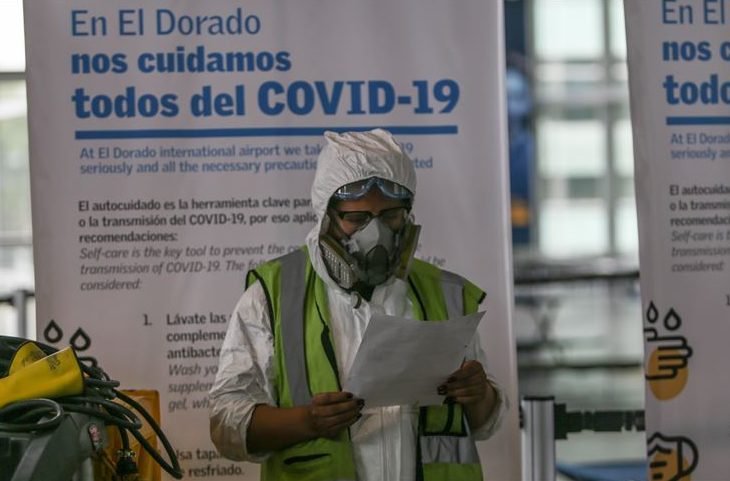
Apr 8, 2020 | Feature articles, News
A Feature Article by Rocio Quintero, Legal Adviser, ICJ Latin American Programme, based in Bogota.
Throughout several decades, a large number of Colombians have been victims of serious crimes related to the ongoing armed conflict. In particular, human rights defenders have been targets of serious human rights violations and abuses, such as killings, death threats, and harassments.
Just this year, the United Nations High Commissioner for Human Rights (OHCHR) has received information of 56 possible cases of killings of human rights defenders. Unfortunately, the COVID-19 outbreak has not stopped the violence against human rights defenders.
In that regard, since the first confirmed case of COVID-19 in the country on 6 March 2020, the Organization of American States (OAS) and International Amnesty has reported six killings. The perpetrators of those crimes have not been identified yet.
Human rights violations and abuses against local communities have not stopped either. Quite the opposite seems to be true.
In that regard, it is said that armed groups, including paramilitary groups and new groups made up of dissident FARC-EP members, are taking advantage of the outbreak to commit illegal actions with fewer constraints, mainly, in rural areas of the country.
Among these actions, it should be highlighted the enforced displacement of 250 people and the forced confinement of 770 families due to combats between a paramilitary group and a guerrilla group. Both actions took place in the pacific region of the country, an area where the conflict has intensified after the peace agreement. In addition, at least three ex-members of the FARC-EP have been murdered in March 2020.
Despite the seriousness of the situation described above, the Colombian government response to the COVID-19 crisis has focused on the creation and implementation of non-conflict-related measures.
In that regard, the Government has decreed various and vital regulations to mitigate the social and economic impact created by the virus. Among others, the president declared a state of emergency and a mandatory 19-day national quarantine that started on 25 March 2020.
The Government also established a program of economic and social aid for those who will be affected most by the quarantine.
None of the measures were designed bearing in mind the particular situation of human rights defenders. Consequently, their protection is not a central element of the Colombian pandemic policies.
Since the implementation of the peace agreement and victims’ rights are not top priorities of the current Government, the approach adopted is not entirely unexpected.
Although, to be fair, it should be recognized that the State programmes for the implementation of the peace agreement have continued operating during the pandemic.
It might be argued that the pandemic has the potential to affect predominantly human rights that have not been directly linked with the internal conflict.
Therefore, following this point of view, the prioritization of non-conflict-related measures is justified and required.
Although this position is based on a valid premise, which is that the COVID-19 pandemic creates several challenges that go beyond conflict-related human rights problems, it ignores a central element of Colombian reality: the existence of an ongoing armed conflict.
Currently, the conflict affects a considerable part of the Colombian population directly, including the majority of human rights defenders. In that regard, last year, it was reported illegal actions related to the internal armed conflict in at least 10 out of 32 departments of Colombia.
In this context, ignoring the importance of the conflict might lead to the implementation of ineffective pandemic measures. This is because, in conflict zones, the protection of human rights requires addressing the specific challenges that the pandemic has created in those territories.
For instance, the presence of illegal groups can prevent local communities from getting tested for COVID-19 and access to health services. Likewise, due to the quarantine, illegal groups might identify easier the location of human rights defenders and retaliate against them.
In relation to human rights defenders, it should also be highlighted the problems related to access to adequate protection measures. In that regard, Amnesty International has denounced that the protection measures for some human rights defenders have been reduced due to the pandemic.
In a similar way, a local NGO expressed concerns for the decision of the National Protection Unit to suspend indefinitely the sessions of the commission where protection measures are defined.
In light of the above, beyond political considerations and the general Government’s priorities, it is imperative that the Government adopts a more comprehensive approach to tackle the pandemic.
It should address the differential impact the pandemic might have on people who lead social and legal transformations in the conflict zones of the country.
In particular, it should implement or adapt protection measures to be effective during the COVID-19 crisis. Similarly, the right to an effective remedy and reparation should also be not only guaranteed, but realized, in compliance with international standards.
Additionally, it is also important that the national Government reinforce its efforts to obtain a humanitarian ceasefire by all illegal groups during the COVID-19 crisis.
A total ceasefire would contribute to (i) protecting the civilian population for violent actions, (ii) implementing the pandemic measures in conflict zones, and (iii) avoiding a proliferation of the virus in vulnerable communities.
This is a crucial measure that has already been requested by national civil organisations, the Head of the UN Verification Mission in Colombia, the OAS, and some parliamentarians.
As yet, only one illegal group has accepted a ceasefire: the National Liberation Army (Ejército de Liberación Nacional, ELN), the largest active guerrilla in Colombia, who declared a unilateral ceasefire during April.
To conclude, acknowledging the importance of the conflict is essential to tackle the human rights implications of the COVID-19 crisis.
This is not only necessary to have comprehensive pandemic policies, but also to make sure that the problems and needs in the conflict zones are not neglected and aggravated during the pandemic.
On this point, as recently stated by UN Secretary-General, people who are most vulnerable during a conflict are also “most at risk of suffering “devastating losses” from the disease.”
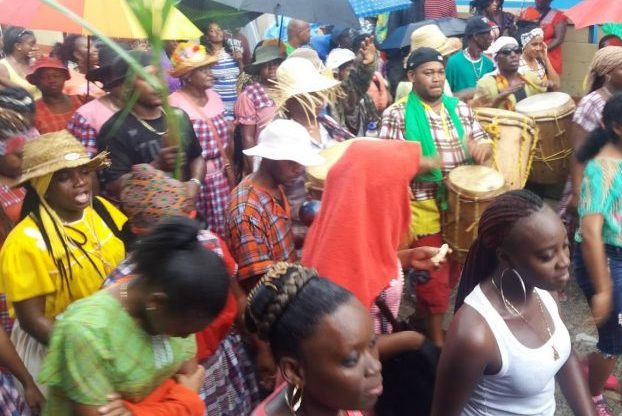
Apr 3, 2020 | Comunicados de prensa, Noticias
Miles de personas pertenecientes a los Pueblos Indígenas de Guatemala (Mayas, Garífunas y Xincas), corren el riesgo de ser víctimas de la pandemia COVID-19, si el Gobierno no les provee, de manera inmediata, la información necesaria y les asegura el acceso a un adecuado servicio de salud, sin discriminación, afirmó hoy la CIJ.
“Los Pueblos Indígenas de Guatemala, enfrentan el riesgo de sufrir los efectos destructivos de la pandemia COVID-19, debido a la discriminación histórica y sistemática en su contra; lamentablemente, en la actual crisis, los Pueblos Indígenas no tienen acceso a información clara y sencilla, para saber cómo protegerse de la pandemia y cómo ser protegidos durante la emergencia, por el Sistema de Salud”, afirmó Ramón Cadena, Director de la CIJ para Centroamérica.
“Las comunidades indígenas que más podrían sufrir los efectos de la pandemia, son aquellas que sufren el abandono absoluto del Estado de Guatemala y viven en extrema pobreza en la frontera con México en el norte y occidente del pais”, añadió.
La CIJ requirió a las autoridades del Gobierno de Guatemala, que garanticen que fluya información clara sobre medidas concretas de salud pública, en los idiosmas Mayas (Ixil, Quiché, Mam, Q´eqchí, Kakchiquel, Canjobal, Chuj y otros), así como en los idiomas Garífuna y Xinca.
Durante la pandemia, el Estado de Guatemala no ha tomado en cuenta las dificultades (financieras, geográficas, tecnológicas y barreras lingüisticas) que enfrentan los Pueblos Indígenas, en lo que respecta al acceso a la información. Por el otro lado, la CIJ ha observado que la información sobre las medidas gubernamentales para enfrentar la pandemia, ha sido comunicada en forma muy limitada.
Los Pueblos Indígenas han sido excluidos del Sistema Oficial de Salud, por la discriminación de que son objeto y por la falta de recursos gubernamentales que se invierten en el Sistema de Salud, luego de los procesos de privatización de los servicios sociales, que se han venido implementando a partir de la firma de los Acuerdos de Paz.
“La debilidad del Sistema de Salud Pública, la prevalencia del racismo existente desde siglos atrás y la marcada desigualdad que sufren los Pueblos Indígenas, agravan aún más el impacto potencial que el Corona virus y la pandemia podrán tener en los Pueblos Indígenas”, afirmo Cadena.
La CIJ insta al Estado de Guatemala a tomar las medidas legislativas, administrativas y judiciales necesarias para preservar los derechos humanos de los Pueblos Indígenas durante la presente emergencia y específicamente, para preservar el derecho a la salud, a la alimentación y a la vivienda; asímismo, para garantizar una vida digna a los Pueblos Indígenas, libres de cualquier amenaza a sus derechos civiles y políticos.
“Todas las medidas que el Gobierno implemente para mitigar los efectos de la pandemia, deben ser estrictamente necesarias, legítimas, proporcionadas y temporales”, afirmó Cadena.
“Hay algunas garantías como el derecho a la Reparación y el Derecho de Acceso a la Justicia, que no pueden limitarse ni suspenderse en ninguna circunstancia, ya que son vitales para que las y los ciudadanos, incluidos los Pueblos Indígenas, puedan defender sus derechos. Tomando en cuenta que la presente pandemia afecta el Sistema Legal en diferentes formas, el Gobierno de Guatemala tendrá que tomar medidas específicas para evitar la discriminación en contra de los Pueblos Indígenas y para garantizar el Derecho de Acceso a la Justicia, durante la pandemia”, finalizó Cadena.
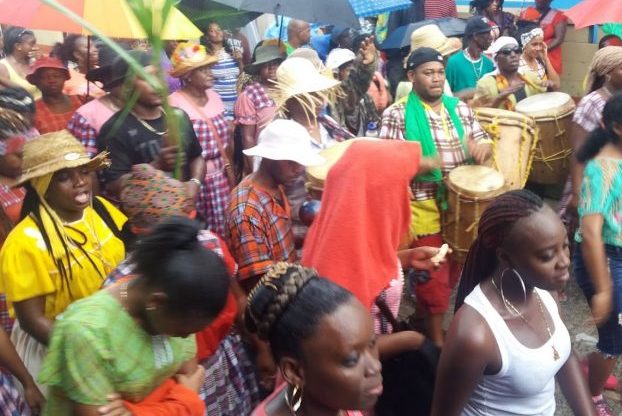
Apr 3, 2020 | News
Millions of indigenous people in Guatemala (Mayas, Garífunas and Xincas) are at increased risk of falling victim to COVID-19 unless the government immediately provides them with necessary information and ensures they have access to adequate health care without discrimination, the ICJ said today.
“Guatemala’s indigenous people face an increased risk of suffering during this global pandemic because of the historic and systemic discrimination against them, which means that they don’t have access to proper information needed to protect themselves, nor to health care should they fall ill because of COVID-19,” said Ramón Cadena, ICJ’s Central America Director.
“The most suffering indigenous communities could be those very poor indigenous communities living at the border with México.”
The ICJ called on Guatemalan authorities to ensure that information about public health measures regarding COVID-19 be offered in the languages most used by indigenous communities (mayan languages such as ixil, quiché, mam, q´eqchí, kaqchikel; and garífuna and xinca languages).
During the pandemic the State of Guatemala has not taken into account the difficulties, such as financial, geographical, technological or linguistic barriers, that indigenous people face in accessing information.
On the other side, the ICJ has noticed that the information about the governmental measures to face the pandemic, has been disseminated in a very limited way.
Indigenous communities have been excluded from the official health system because of the discrimination against them and the lack of resources invested in the health system of Guatemala due to processes of privatization of social services, which have been implemented in Guatemala after the signature of the Peace Accords.
“The general weakness of the Guatemalan public health system, historic racism against the indigenous community and the tremendous general social inequality in the country all aggravate the potential impact of the pandemic on the indigenous community,” Cadena said.
The ICJ urges the State of Guatemala to take the necessary legislative, administrative, and judicial measures to protect Indigenous Peoples and preserve their human rights during the current emergency, specifically their right to health, food, and housing.
The ICJ also called on the Guatemalan government to avoid measures that threaten the life and dignity of people, including those from the indigenous community who are generally most subject to violations of their civil and political rights.
“Any measures taken in response to the pandemic must be limited to those that are strictly necessary, legitimate, and proportionate to the risk facing the community, and limited in time and subject to review,” Cadena said.
“There are certain guarantees, such as the right to an effective judicial remedy, that cannot be suspended or repealed and that are vital so that citizens, including indigenous people, can safeguard their rights, and even as the pandemic inevitably affects the legal system the government must do all it can to avoid discrimination against the indigenous community, which already suffers from racism and lack of access to justice.”
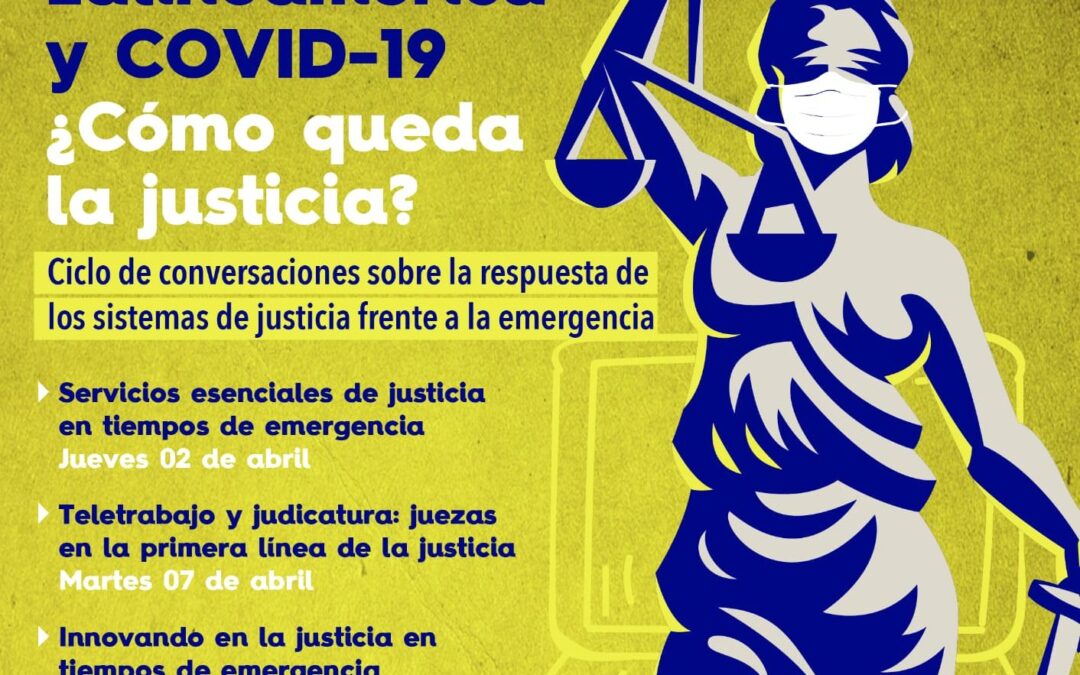
Mar 30, 2020 | Eventos, Noticias
Los países de América Latina han adoptado diversas medidas excepcionales para enfrentar la pandemia, gestionar la crisis sanitaria y adoptar cuarentenas de la población. Estas medidas tienen efectos directos sobre los derechos básicos y las libertades de las personas.
Por este motivo, vale la pena preguntarse: ¿Cómo han reaccionado los sistemas de justicia frente a esta situación? ¿Qué se requiere para seguir garantizando el acceso a la justicia en esta coyuntura? ¿Cómo afecta la pandemia la prestación de los servicios de justicia? ¿Cómo puede innovar la justicia para dar una respuesta a las nuevas y crecientes demandas ciudadanas?
Por esto, la CIJ apoya una iniciativa que es liderada por un grupo de mujeres de América Latina que trabajan en temas de justicia en la región, que pretende analizar la respuesta de los sistemas de justicia frente a la emergencia generada por la pandemia. Esta iniciativa cuenta con el apoyo de DPLF, la Fundación Construir, la Fundación Tribuna Constitucional, el Observatorio de Derechos y Justicia, y la Fundación para la Justicia y el Estado Democrático del Derecho.
Los conversatorios se llevarán a cabo en español y a través de la plataforma Zoom; las inscripciones para cada conversatorio se pueden realizar enviando un correo electrónico a: info@dplf.org Las personas inscritas recibirán el link donde se podrá seguir la actividad.
Los primeros tres conversatorios son los siguientes:
- Servicios esenciales de la justicia en tiempos de emergencia: 2 de abril
14 horas México-Centroamérica/ 15 horas Colombia-Perú-Ecuador/ 16 horas Washington-Bolivia/ 17 horas Chile -Argentina
- Teletrabajo y judicatura: juezas en la primera línea de la justicia: 7 de abril
14 horas México-Centroamérica/ 15 horas Colombia-Perú-Ecuador/ 16 horas Washington-Bolivia/ 17 horas Chile -Argentina
- Innovando en la justicia en tiempos de emergencia: 9 de abril
14 horas México-Centroamérica/ 15 horas Colombia-Perú-Ecuador/ 16 horas Washington-Bolivia/ 17 horas Chile -Argentina









